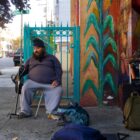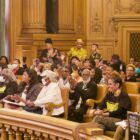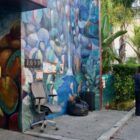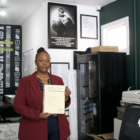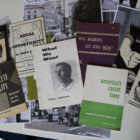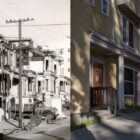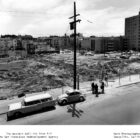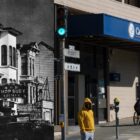After 2½ years of meetings, community discussions, historical deep dives and policy generation, a panel tasked with proposing how San Francisco might atone for decades of discrimination against Black residents is ready to ask the city to step up and support equity rhetoric with action.
San Francisco’s African American Reparations Advisory Committee is aiming to submit its final recommendations to the city by June 30, according to Brittni Chicuata, director of economic rights at the city’s Human Rights Commission. In the meantime, the city’s annual budget process is in full swing, which may affect funding and the timeline for whatever reparations policies the board decides to pursue.
